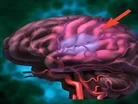Research shows brain damage from brain stroke can be decreased

Study from The University of Queensland shows that monitoring the brain of stroke patients using Quantitative EEG studies can inform treatments and also lessen the brain damage of stroke victims.
Professor Michelvan Putten from Medisch Spectrum Hospital and University of Twente in the Netherlands and Dr Simon Finnigan from UQ’s Centre for Clinical Research recently reviewed all the published QEEG studies of stroke globally.
The study is directed towards evaluating the key findings, identifying common trends and also determines what the future priorities should be for research and also for translating this to best inform clinical management of patients suffering from stroke.
Dr. Finnigan said, “Our studies have the real potential to eventually contribute to better outcomes for stroke patients and for me this is the ultimate goal.”
He also stated that the review of outcomes from hundreds of patients has highlighted that QEEG indicators are informative in 2 ways.
Firstly they can help in predicting the long-term deficits caused by stroke and they can also provide immediate information on how patients are responding to the treatment and guide decisions regarding the follow-on treatments.
A drug named tissue plasminogen activator which can dissolve blood clots is administered intravenously to stroke patients within 4.5 hours after the onset of symptoms and clinicians wait for the visual signs that symtoms are improving. He also said, if this does not occur after an hour, then follow-on treatments will be used.
Dr. Finnigan also said, “This is where QEEG can indicate whether or not the brain is responding to the drug. Plus, it could do so up to an hour before the symptoms might improve.” Dr. Finnigan also said, “This is a critical difference when time is brain and clinicians are trying to get blood back into the brain before it’s too late. If QEEG can enable clinicians to start other treatments faster, this could help minimize brain damage and deficits.”



